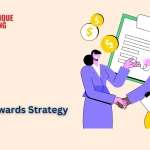Compensation and reward management are pivotal in shaping a company's organisational culture and performance. A well-structured compensation system not only motivates employees but also significantly contributes to improving an employer's external reputation.
Attracting and retaining top talent is crucial in a competitive job market, and a robust compensation strategy can set a company apart from its competitors. Competitive salaries, performance bonuses, and comprehensive benefits packages attract skilled professionals and reduce attrition by fostering a sense of value and recognition among employees.
Effective compensation and reward management contribute to retaining valuable company knowledge and skills. When employees feel fairly compensated for their contributions, they are more likely to remain loyal to the organisation, reducing the risk of losing critical expertise. This, in turn, promotes continuity and stability within the company, enhancing its ability to adapt to industry changes and challenges.
Designing a compensation and reward system aligns employee efforts with organisational goals, fostering a positive work environment and boosting overall productivity. This creates a future-proof model for your business.
Upon completion of this course, participants will be able to:
- Employ methodologies to create, structure, and execute a business competency framework within the organisation.
- Conduct unbiased evaluations of employees to identify gaps between their existing competencies and the required standards, creating awareness to meet the necessary criteria.
- Formulate and draft competency terms within the framework, encompassing behavioural and technical aspects.
- Implement the framework for purposes such as recruitment, identifying assessments, and fostering employee development.
This course is designed for anyone responsible for developing a compelling benefits package within their organisation to retain employee knowledge and skills. It would be most beneficial for:
- Business Owners
- HR Professionals
- Operations Managers
- Managing Directors
- Heads of Departments
- Chief Financial Officers
- Administrators
- Learning & Development Managers
- Talent Developers
- Recruiters
This course uses a variety of adult learning styles to aid full understanding and comprehension. Participants will review various benefits packages from successful companies and work together to understand the reasons for their success.
They will also review a trainer-led presentation with real-world case studies of unsuccessful benefits packages and understand the financial and societal reasons for failure. They will then conduct a group discussion based on their thoughts on what may work for their own company, inviting real feedback on proposals to implement a future benefits and compensation package.
Day 5 of each course is reserved for a Q&A session, which may occur off-site. For 10-day courses, this also applies to day 10
Section 1: Understanding Your Competency Model
- Exploring competency models and their significance.
- Aligning competency models with organisational goals.
- Analysing the role of competency models in talent management.
- Understanding the link between competency models and employee performance.
- Leveraging competency models for effective benefits design.
- Customising benefits packages based on identified competencies.
- Evaluating the impact of competency-based benefits on employee satisfaction.
- Integrating competency models into overall HR strategies.
Section 2: Developing a Future-Focused Competency Framework
- Defining key components of a future-focused competency framework.
- Understanding the role of competency frameworks in organisational development.
- Aligning competency frameworks with future business trends.
- Incorporating technological advancements in competency development.
- Identifying and assessing future-oriented skills and capabilities.
- Linking competency frameworks to succession planning.
- Adapting competency frameworks to changing industry landscapes.
Section 3: Expected Behaviours & Outputs for Levelled Achievements
- Understand the correlation between behaviours and salary achievements.
- Develop effective communication for behaviour-salary alignment.
- Explore motivation and incentives in relation to salary levels.
- Analyse behaviour-driven salary advancements through case studies.
- Create metrics for evaluating salary-level achievements.
- Foster a positive work culture for enhanced behaviours.
- Implement feedback for continuous behaviour improvement.
- Navigate challenges in salary achievement processes.
- Leverage technology for tracking expected behaviours.
- Conduct salary reviews based on demonstrated achievements.
- Foster accountability and ownership in achieving salary levels.
Section 4: Technical Development to Monitor Success Levels
- Applying data analytics in technical development to monitor success.
- Automating monitoring and reporting of success metrics.
- Improving coding skills for successful technical implementations.
- Staying updated on emerging technologies for advanced success monitoring.
- Building troubleshooting expertise to tackle technical challenges.
- Tailoring technical solutions for diverse success measurement requirements.
- Integrating cybersecurity measures into success monitoring systems.
- Power BI, SAP & Oracle usage for productivity and skills monitoring.
Section 5: Assessment & Evaluation - Measuring Metrics
- Hands-on training on software applications designed for measuring key performance indicators (KPIs).
- Exploring potential biases in IT-driven metrics and methods to mitigate them.
- Ensuring fairness and equity in the assessment process to avoid disparities in salary uplift.
- Understanding legal and ethical considerations associated with using IT metrics for salary decisions.
- Comply with privacy regulations and ensure data security during the assessment process.
- Establishing a framework for continuous improvement based on feedback and evolving industry standards.
- Implementing iterative changes to the assessment process to adapt to organisational needs.
Upon successful completion of this training course, delegates will be awarded a Holistique Training Certificate of Completion. For those who attend and complete the online training course, a Holistique Training e-Certificate will be provided.
Holistique Training Certificates are accredited by the British Assessment Council (BAC) and The CPD Certification Service (CPD), and are certified under ISO 9001, ISO 21001, and ISO 29993 standards.
CPD credits for this course are granted by our Certificates and will be reflected on the Holistique Training Certificate of Completion. In accordance with the standards of The CPD Certification Service, one CPD credit is awarded per hour of course attendance. A maximum of 50 CPD credits can be claimed for any single course we currently offer.
- Course Code PH1-123
- Course Format Classroom, Online,
- Duration 5 days









